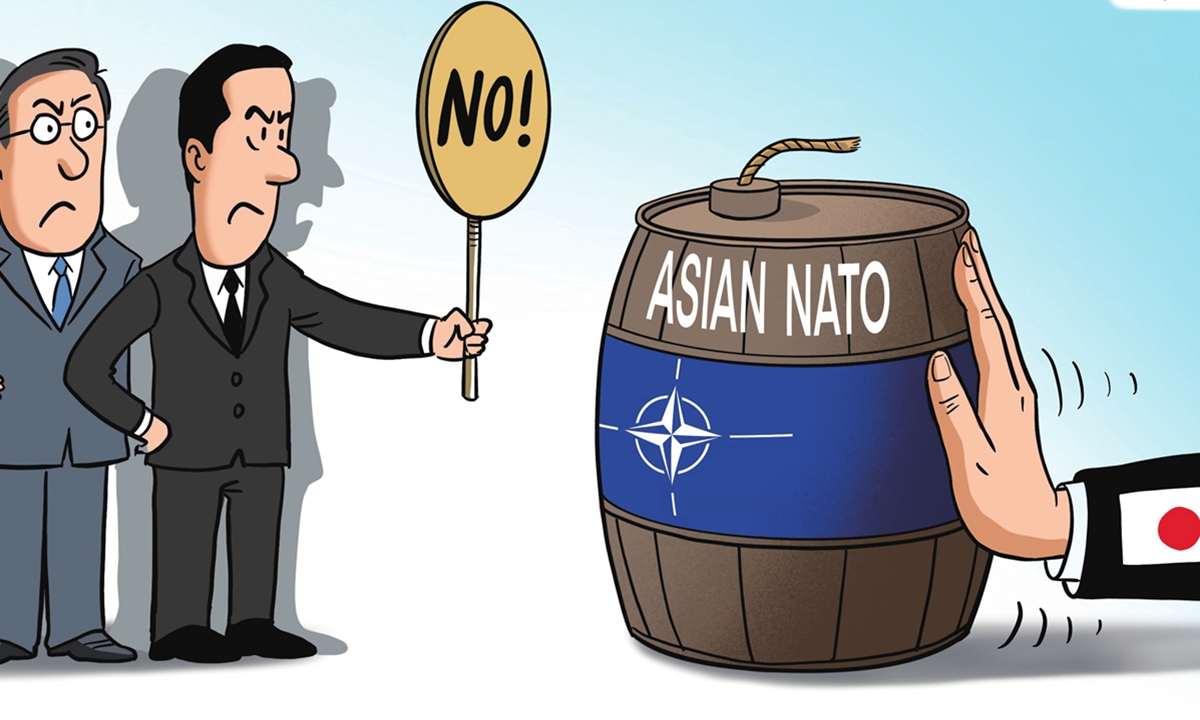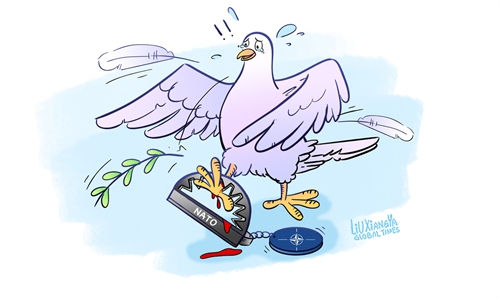
Illustration: Liu Rui/GT
In a recent article for The Wall Street Journal, US Ambassador to Japan Rahm Emanuel stated that it is now time to "further isolate China by confronting Beijing's economic tactics." He proposed that the US and its allies should form a coalition economically equivalent to NATO to present a united front against China's "economic coercion." Coincidentally, Emanuel's proposal came at a time when Japan's new Prime Minister Shigeru Ishiba's call for the creation of a collective self-defense system in Asia, an "Asian NATO," had already made headlines.Is there any possibility that Emanuel's proposed economic coalition and Ishiba's security-focused "Asian NATO" will be realized? In my view, the likelihood of realizing either of those two ideas is extremely low. To be more specific, while establishing a security-focused "Asian NATO" is already difficult, setting up an "economic NATO" is even less feasible, particularly in Asia.
The idea of an "economic NATO" neither aligns with the overall trend of economic globalization, nor adheres to the principles of economic development. Furthermore, it ignores the current realities of Asia's economic and social development. It is nothing more than a catchy slogan put forward by some US politicians to gain political attention and reap political benefits. This can be seen in the following key areas:
First, although the current global situation, particularly in terms of security, has undergone significant changes, the fundamental trend of economic globalization remains unchanged. For almost all countries, including the US and Japan, maintaining economic growth and ensuring the improvement of people's living standards are still the most important issues and tasks. The role of China, the world's second-largest economy, in global trade is undeniable. For many countries, especially those in Asia, China is their largest trading partner. Its development and stability are not seen as a threat, but rather as a valuable opportunity for cooperation and mutual benefit.
Second, the overall situation in Asia differs significantly from the post-World War II alliance systems in the US and Europe. Europe has become heavily dependent on the US in terms of security and economy, which has diminished its autonomy. In contrast, in Asia, the levels of economic development vary widely across the region, while ASEAN, in particular, has a strong sense of autonomy and will not simply adhere to the arrangements set by any other country. For instance, some voices in Indonesia have openly voiced their opposition against Ishiba's proposal for an "Asian NATO," underscoring the strong insistence for autonomy among Asian nations.
Third, the economic development of countries like the US and Japan is inextricably linked to China. Creating an economic version of NATO would be self-defeating, causing more harm to themselves. According to statistics, China's foreign trade with the US amounted to $664.5 billion in 2023. Meanwhile, China-Japan bilateral trade in 2023 totaled approximately $318 billion, with Japan being China's second-largest trading partner. This clearly demonstrates that the concept of an "economic NATO" is more about political correctness than its feasibility.
Finally, although its economic development has faced some challenges, China is not only fully aware of these issues, but also addressing them head-on by taking various measures to boost the economy. Notably, the country is further deepening its reforms and opening-up, strengthening market vitality and the rule of law, and striving to improve the business environment. As long as China continues to move in the right direction of development, no country or alliance can contain or stop its progress.
Cooperation leads to mutual benefit, while confrontation results in a lose-lose situation. NATO has not brought peace to Europe; instead, it has led to confrontation, conflict and even war. Asia is not Europe - what Asian countries seek is peace and development, not confrontation and conflict. Therefore, the idea of establishing an economic version of NATO may create a buzz, but it is unlikely to become a reality, definitely not in Asia.
The author is a scholar of international politics and China-Japan relations at the College of Foreign Languages of the University of Shanghai for Science and Technology. opinion@globaltimes.com.cn

